How the Malaysia–UN SDG Trust Fund helped scale up our chicken farming project.
Muadzam Shah | August 26, 2025
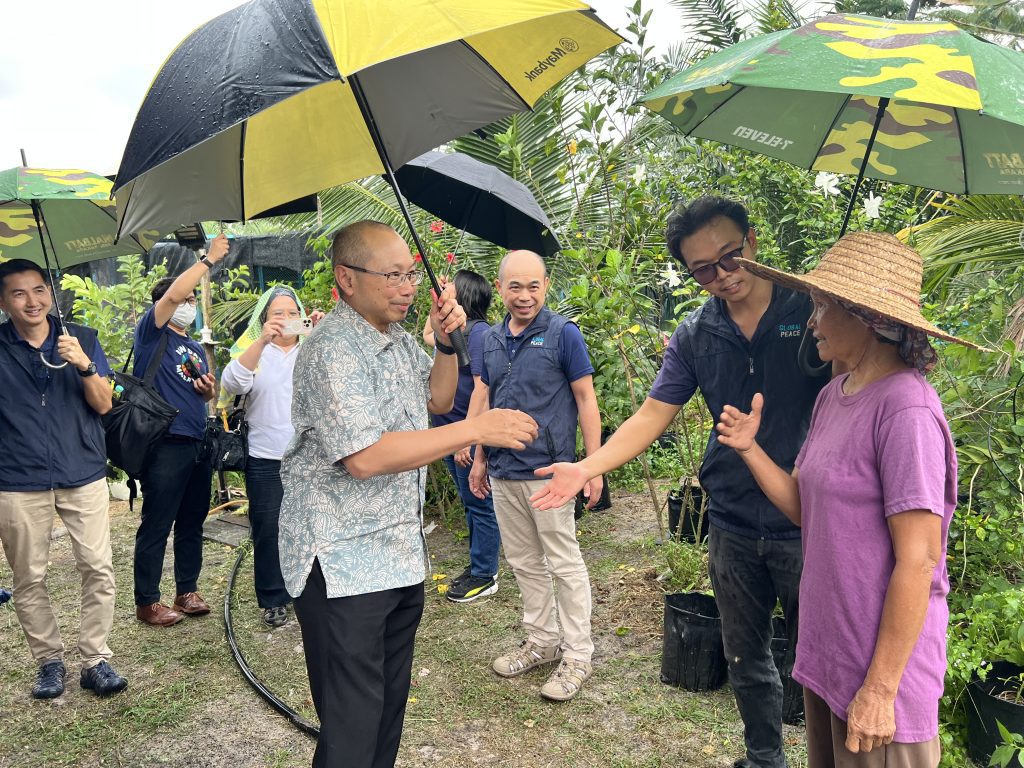
The rain poured steadily on zinc roofs as chickens clucked in excitement, waiting to be fed, a lively and familiar scene in Kg Jong, Rompin. Yet the downpour did nothing to dampen the spirits of the visiting delegation from the MySDG Foundation, United Nations, and Ministry of Economy.
If anything, it heightened their anticipation to witness firsthand the chicken farming project, a community-led effort that began as a small pilot in 2020 and has since grown to involve 60 Orang Asli farmers from Bera and Rompin, Pahang. More than just poultry, the project is designed to improve the livelihoods, incomes, and nutritional wellbeing of the Orang Asli community.
At Global Peace Foundation Malaysia, we had the honour of welcoming this high level delegation to our field office in Muadzam Shah, before accompanying them on a site visit to Kg Jong. The occasion marked a significant milestone for our Chicken Farming (CF) project, a journey that began humbly 5 years ago and today stands as a model of empowerment and community resilience.
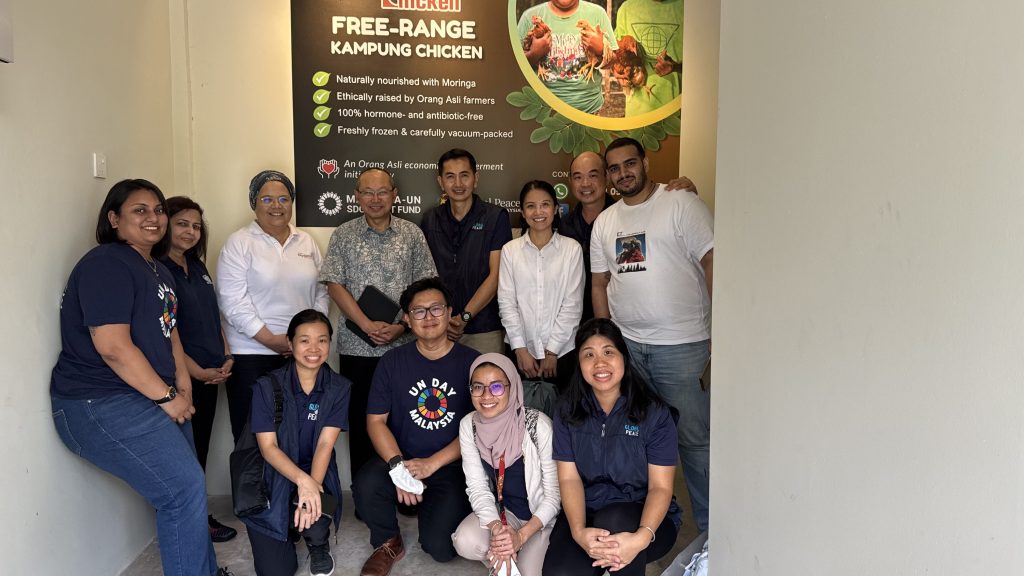
From left, standing –
Ms. Navreena Levan, CME Associate, Malaysia-UN SDG Trust Fund Secretariat, Ms. Juanita Joseph, Head of UN Resident Coordinator’s Office and Strategic Planner, Ms. Anita Ahmad, CEO, MySDG Foundation, YBhg. Tan Sri Abdul Wahid bin Omar, Co-chair of the Malaysia-UN SDG Trust Fund Steering Committee and Chair of the MySDG Foundation Board of Trustees, Dr Teh Su Thye, CEO, Global Peace Foundation Malaysia, Ms. Natra Joseph Stalin, Assistant Director (Food Crops), Agriculture Division, Ministry of Economy, Mr. Nicholas Lee,Global Peace Foundation Malaysia, Mr. Kiran Jacob, reporter (The Edge)
From left, second row –
Ms. Cass Mah,Global Peace Foundation Malaysia, Mr. Lim Fook Ming, OIC, Malaysia-UN SDG Trust Fund Secretariat, Ms. Yasmin Norazharuddin, Principal Assistant Director, National SDG Centre, Ministry of Economy, Ms. Linda Heng, Global Peace Foundation Malaysia
Charting our journey since 2020
The Chicken Farming initiative was first piloted in 2020, designed to strengthen Orang Asli livelihoods through:
- Training and capacity building for new farmers
- Chicken coop construction and subsidie
- Supplemental feed via circular nutrient cycle (moringa, ubi kayu, ketum ayam and other local resources
- Centralised packing facility with vacuum packing and blast freezing for premium quality
- Digital monitoring tools such as AppSheet to track farm performance, and stock movement
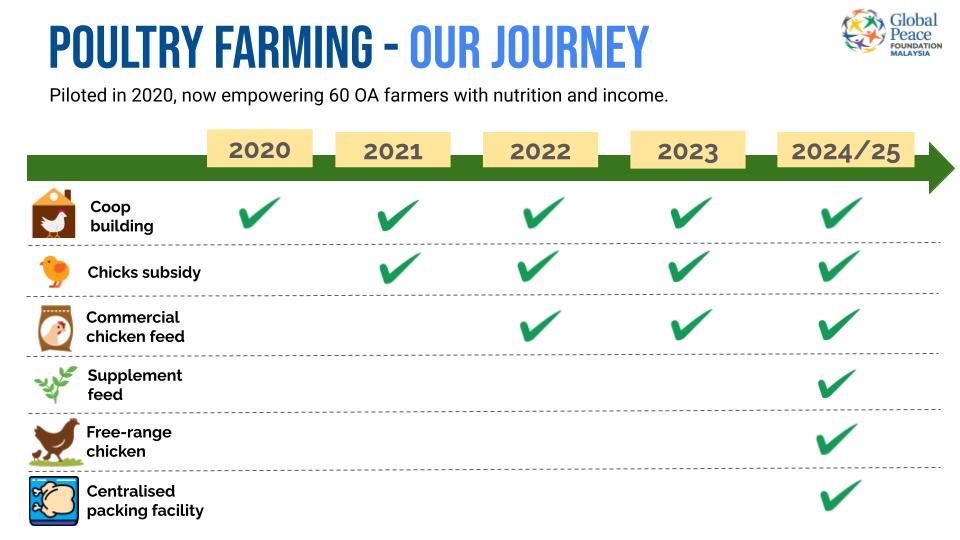
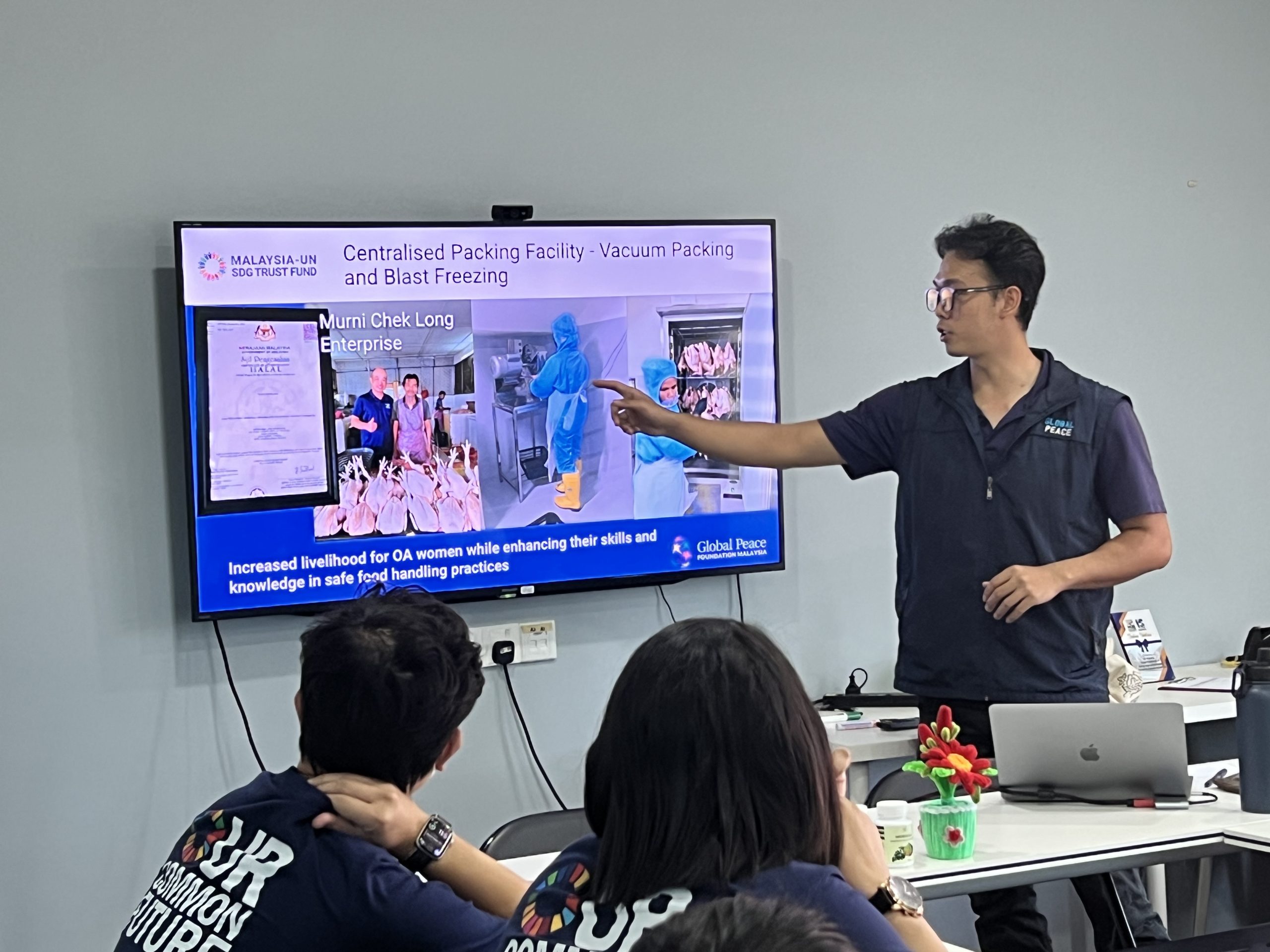
Chung Siu, our field office lead for the Chicken Farming Project, presenting during the project briefing.
Today, the project is not only producing healthier Moringa fed chickens, but also building stronger rural entrepreneurship among Orang Asli families.
Visit highlights
At our Field Office in Muadzam Shah, delegates were briefed on the project’s progress and witnessed operations at the chicken processing centre, where they observed how the chickens are cleaned, vacuum-packed, and blast frozen to ensure freshness and food safety.
“Various programmes conducted here are efforts to support economic conditions and wellbeing so that communities can participate in the country’s growth. At the end of the day, we want our people to prosper together,” said Tan Sri Abdul Wahid.
“We are very happy with the progress. Being able to see how the chickens are processed and observing how healthy they are is a reflection of the farmers’ good effort and commitment,” he added.
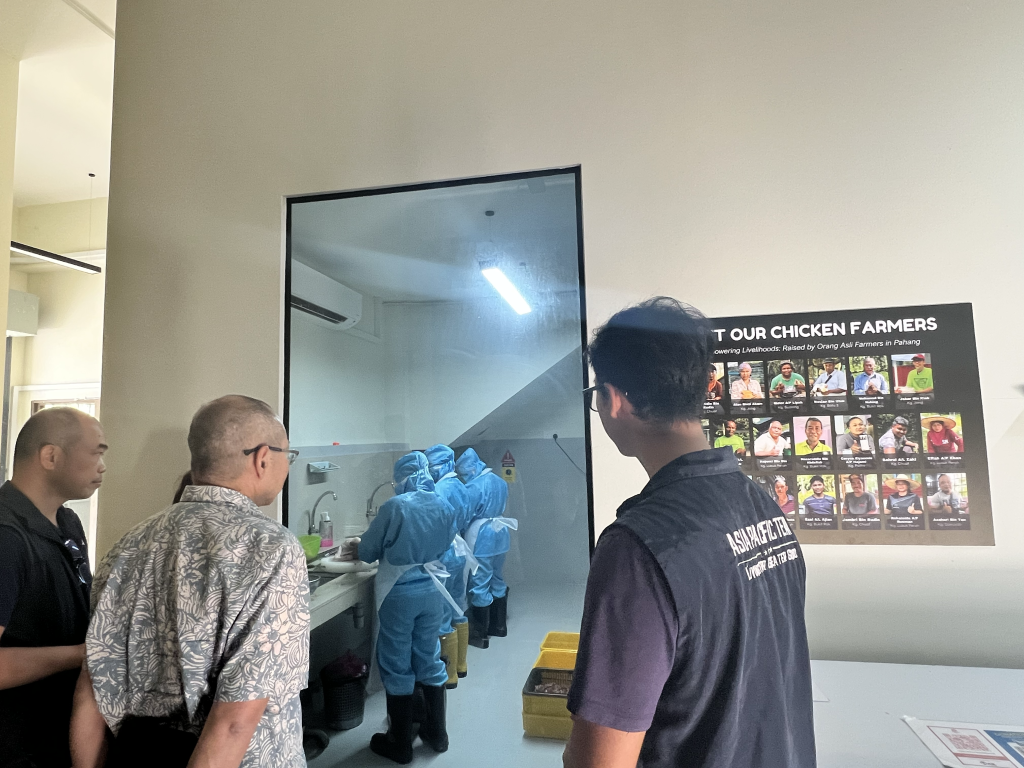
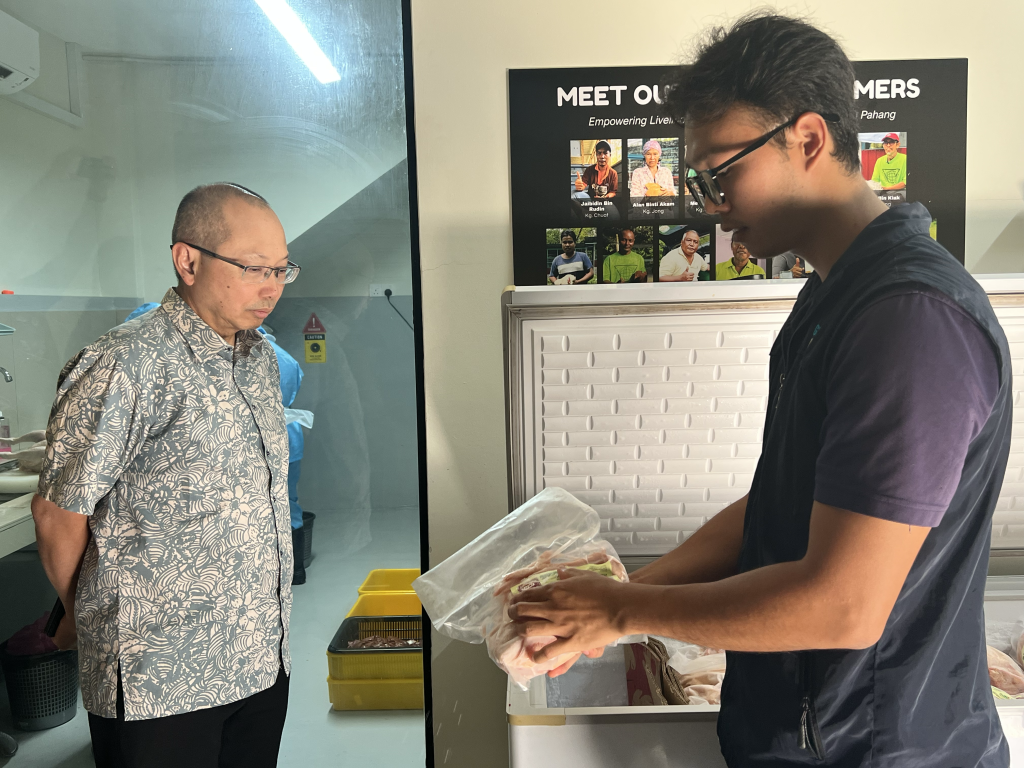
Delegates touring our chicken procesing centre
Delegates also enjoyed a lunch prepared with our very own Moringa chicken, experiencing the difference in taste and quality firsthand.
On the ground in Kg. Jong
Despite the rain, spirits were high as the delegation visited Nenek Alan’s chicken coop, where she demonstrated feeding chickens with chopped moringa and ubi kayu. The farmers are raising premium free-range chickens, fed with 70% regular feed and 30% nutrient-rich moringa leaves, a superfood that enhances the nutritional value of their produce.
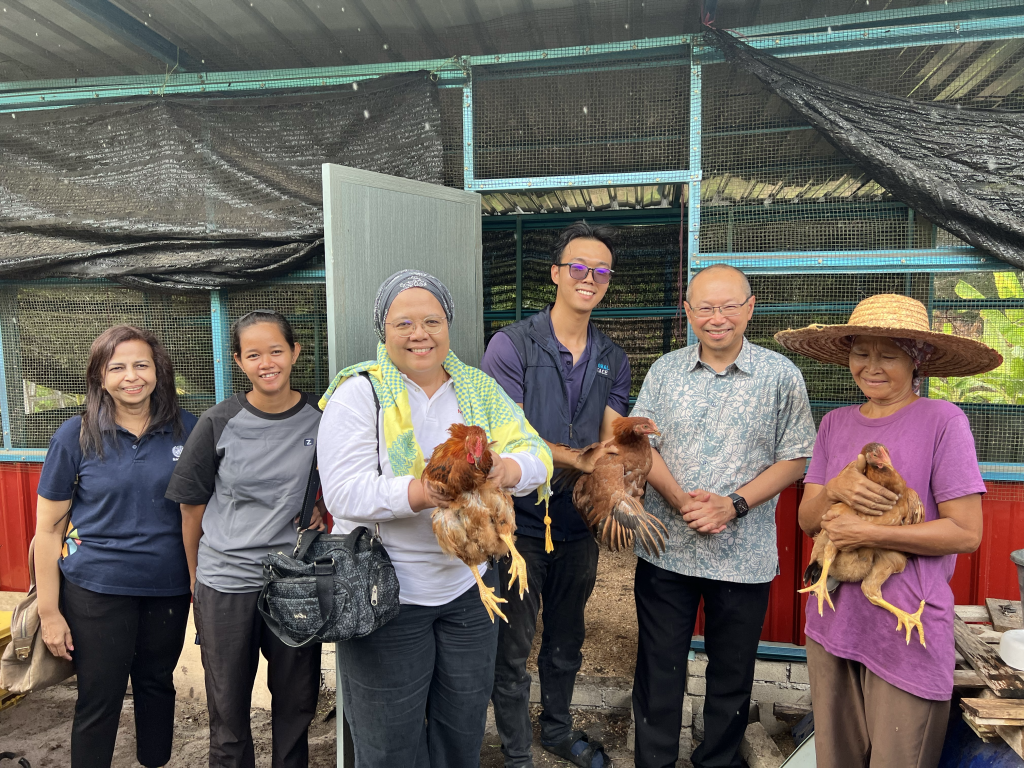
Near Pak Jabar’s home, one of our most dedicated farmers in Kg. Jong, we were welcomed with a traditional Tempok (traditional Orang Asli head gear) ceremony. Gathered in a circle on the open verandah, the farmers shared their stories from small victories to big achievements as well as the challenges they continue to face in their chicken farming journey.
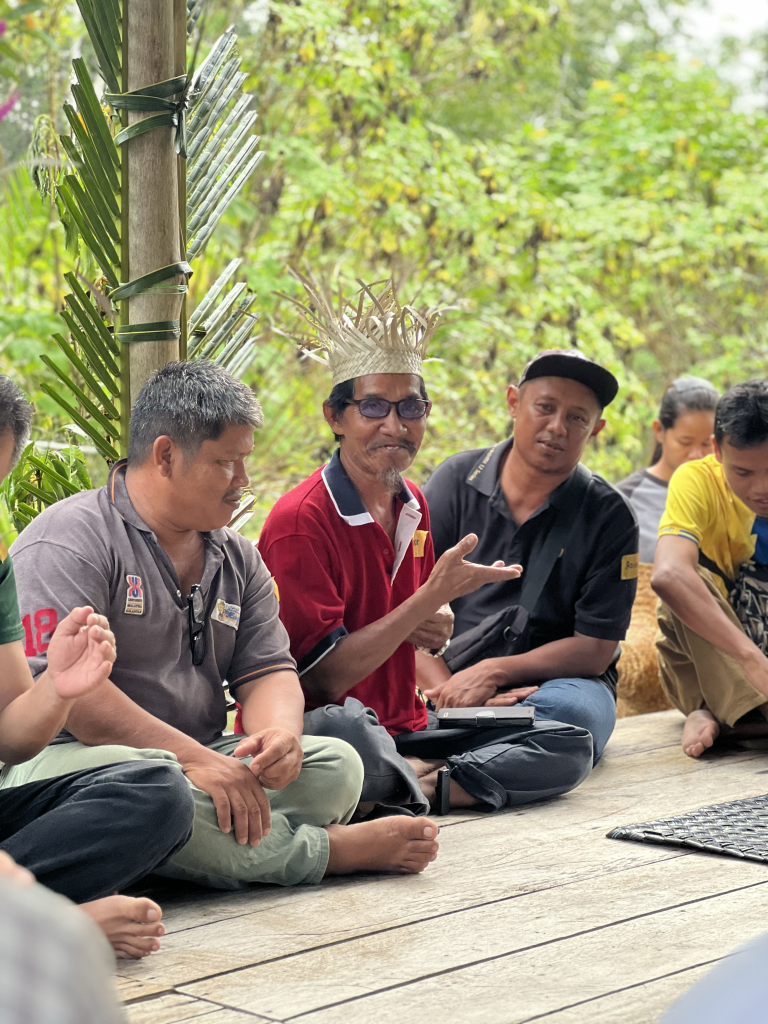
Pak Jabar, our host, thanked the delegation for their visit and shared his hope that fellow farmers will continue to thrive through this initiative.
Batin Mohamad Bin Nohing, a well respected leader from Bera, travelled all the way to join and support this programme. (Batin is the traditional title for an Orang Asli village chief.) As one of our chicken farmers, he shared his perspective:
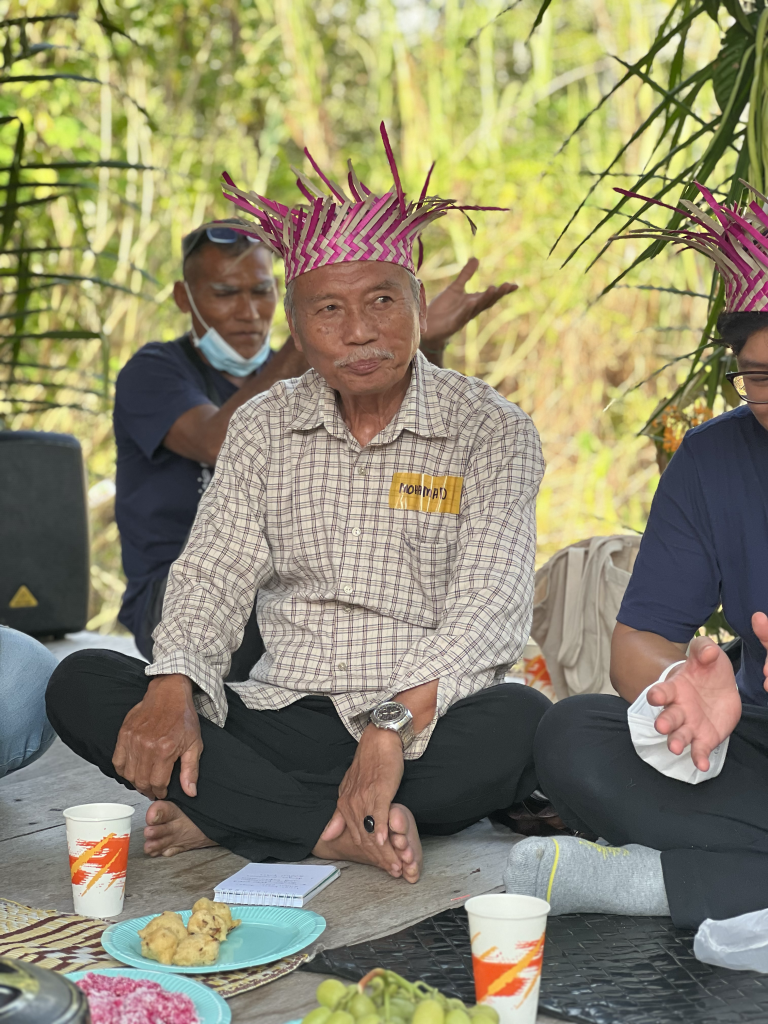
Batin Mohamad, jotting down the notes and all ears during the sharing session.
“What drew me to this project is its focus on sustainability. Knowing that we have the right support gives me hope that this initiative will continue, not just for one or two phases. I believe we can uplift the Orang Asli because the project has clear objectives to ensure sustainable livelihoods for our community” he added
Among the highlights during the sharing, Amai Melor recounted how her chicken farming income enabled her to extend her kitchen. As one of our syntropic farmers as well, Amai Melor has shown great commitment to building a sustainable livelihood for her family. Nenek Alan reflected that while the work was challenging at first, especially after the passing of her husband, the backbone of her family she now finds joy and pride in tending to the chickens.
These stories showed how the project is planting more than just livelihoods, it is nurturing confidence,and a sense of ownership among the farmers. Each voice carried the same message, with the right support and perseverance, change is possible, and dreams can take root even in the most challenging of circumstances.


Of course, the farmers also shared the challenges they faced and the lessons learned throughout the rearing phases. Among these were difficulties in marketing their chickens, as well as premature losses caused by diseases and transportation.
Their sharings highlight not only improved livelihoods but also a growing sense of ownership and pride among the farmers, and despite the challenges they are improving and implementing solution to
A shared commitment
The visit reaffirmed the commitment of MySDG Foundation, UN, and the Ministry of Economy in supporting Orang Asli livelihoods. For us, it was definitely a moment of pride to see how things have grown since 2020 and how collaborative efforts can create sustainable change, where economic empowerment, culture, and community wellbeing go hand in hand!
Watch our video recap of the day here!






